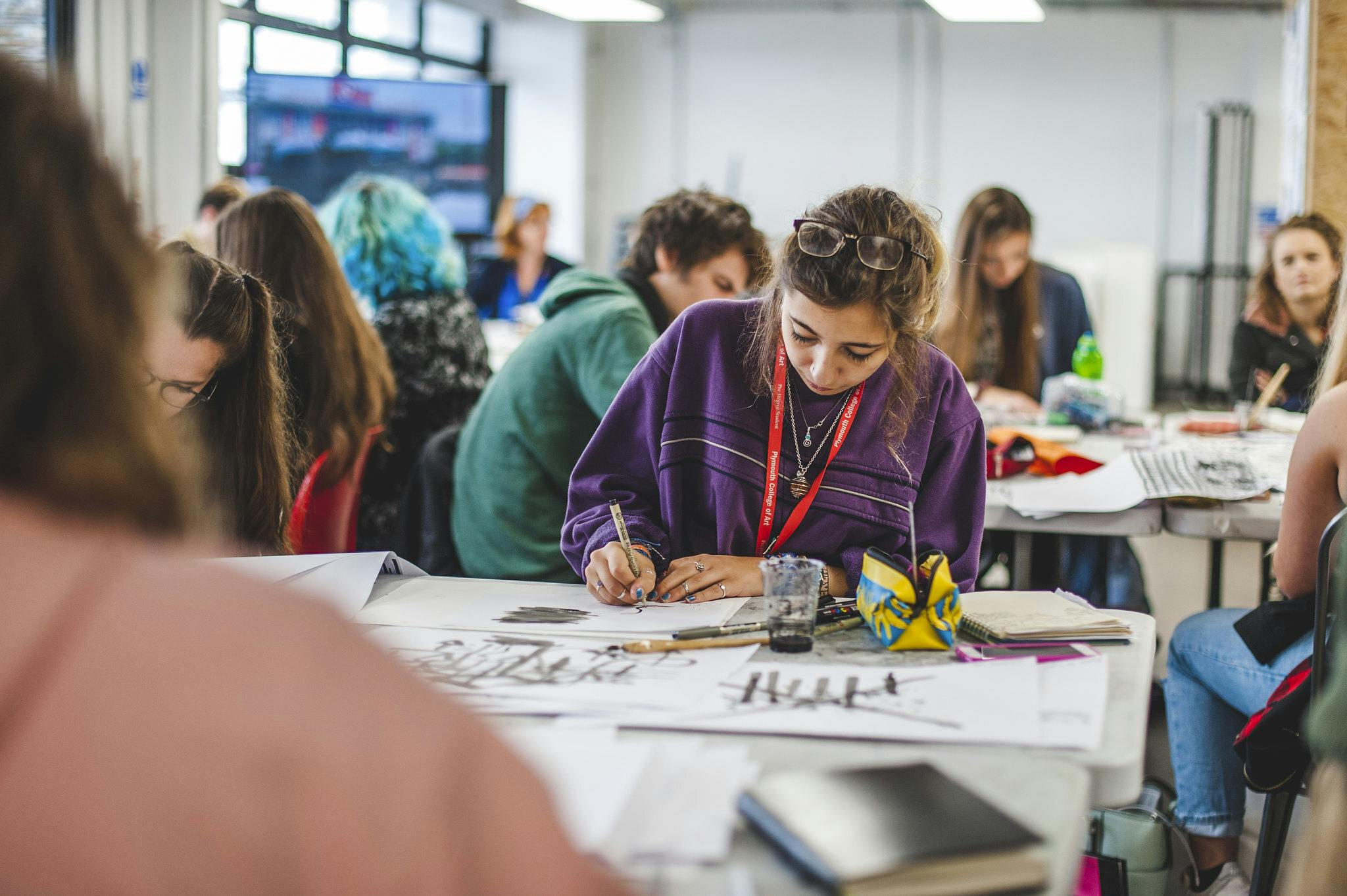Progression & Careers
Personally tailored careers information, advice and guidance (CIAG) for our students.
The Pre-Degree Progression & Careers plan provides a bespoke, tailored and scaffolded Careers Information Advice and Guidance (CIAG) model embedded within our curriculum.
Arts University Plymouth 2022/23 Pre-Degree Progression & Careers year plan | Gatsby Careers Benchmark (GCB) coverage | |
September 2023 |
| GCB: 1
GCB: 2 GCB: 4+5 GCB: 7 GCB: 3 |
October 2023 |
| GCB:4 GCB:7 GCB: 4 GCB: 1 GCB: 1 GCB: 1 GCB: 3 GCB: 4&5 |
| November 2023 |
| GCB: 4+6 GCB: 4 GCB: 1 GCB: 7 GCB: 2 GCB: 4+5 GCB: 4 GCB: 8 GCB: 4 |
| December 2023 |
| GCB: 4+6 GCB: 7 GCB: 1 GCB: 4&5 GCB: 1 GCB: 4 GCB: 8 GCB: 4 |
| January 2024 |
| GCB: 8 GCB: 1 GCB: 8 GCB: 1 |
| February 2024 |
| GCB: 8 GCB: 4 GCB: 8 |
| March 2024 |
| GCB: 8 GCB: 6 GCB: 1 GCB: 7 GCB: 4 GCB: 7 |
| April 2024 |
| GCB: 8 GCB: 8 GCB: 1 GCB: 8 |
| May 2024 |
| GCB: 8 GCB: 8 GCB: 1 GCB: 8 |
| June 2024 |
| GCB: 5 GCB: 8 GCB: 1 |
| July 2024 |
| GCB: 8 |
The ARTiculation competition is a nationally-acclaimed annual event designed to promote the appreciation and discussion of art. The competition seeks to engage all full-time students aged 16-19 - and regardless of background or experience - with art, and to develop their confidence and ability to express their opinions and thoughts through critical thinking and problem solving techniques.
The Skills Project continues to provide an embedded methodology to develop personal development, British values and progression readiness through the recognition and collective ownership of a set of values required to meet these important demands. The Project allows our teachers and students to track and communicate progress in relation to employability and soft skills via regular progress checks. In terms of impact, we continually assess Pre-Degree learners through progress checks to measure the demonstration of character traits and attributes that mirror expectations of working in higher education or industry.
This project is designed to enhance your professional practice and our learners maturity as an artist, maker or designer. The skills and knowledge they gain in this project will be transferable in any chosen academic or career path. They will explore elements of a business focused environment, this brief is about creativity, collaboration and commercialism.
NEET stands for "Not in Education, Employment, or Training". It refers to a person who is unemployed, not in school or in a meaningful training programme.
Design To Sell, our long-running fair and marketplace where Pre-Degree students sell their work, takes place annually in our dedicated Pre-Degree buildings.
| Gatsby Career Benchmark | Brief description |
| 1. A stable careers programme | Every school and college should have an embedded programme of career education and guidance that is known and understood by pupils, parents, teachers and employers. |
| 2. Learning from career and labour market information | Every pupil, and their parents, should have access to good-quality information about future study options and labour market opportunities. They will need the support of an informed adviser to make best use of available information. |
| 3. Addressing the needs of each pupil | Pupils have different career guidance needs at different stages. Opportunities for advice and support needs to be tailored to the needs of each pupil. A school’s careers programme should embed equality and diversity considerations throughout. |
| 4. Linking curriculum learning to careers | All teachers should link curriculum learning with careers. For example, STEM subject teachers should highlight the relevance of STEM subjects for a wide range of future career paths. |
| 5. Encounters with employers and employees | Every pupil should have multiple opportunities to learn from employers about work, employment and the skills that are valued in the workplace. This can be through a range of enrichment activities including visiting speakers, mentoring and enterprise schemes. |
| 6. Experiences of workplaces | Every pupil should have first-hand experiences of the workplace through work visits, work shadowing and/or work experience to help their exploration of career opportunities, and expand their networks. |
| 7. Encounters with further and higher education | All pupils should understand the full range of learning opportunities that are available to them. This includes both academic and vocational routes and learning in schools, colleges, universities and in the workplace. |
| 8. Personal guidance | Every pupil should have opportunities for guidance interviews with a careers adviser, who could be internal (a member of school staff) or external, provided they are trained to an appropriate level. These should be available whenever significant study or career choices are being made. They should be expected for all pupils but should be timed to meet their individual needs. |
